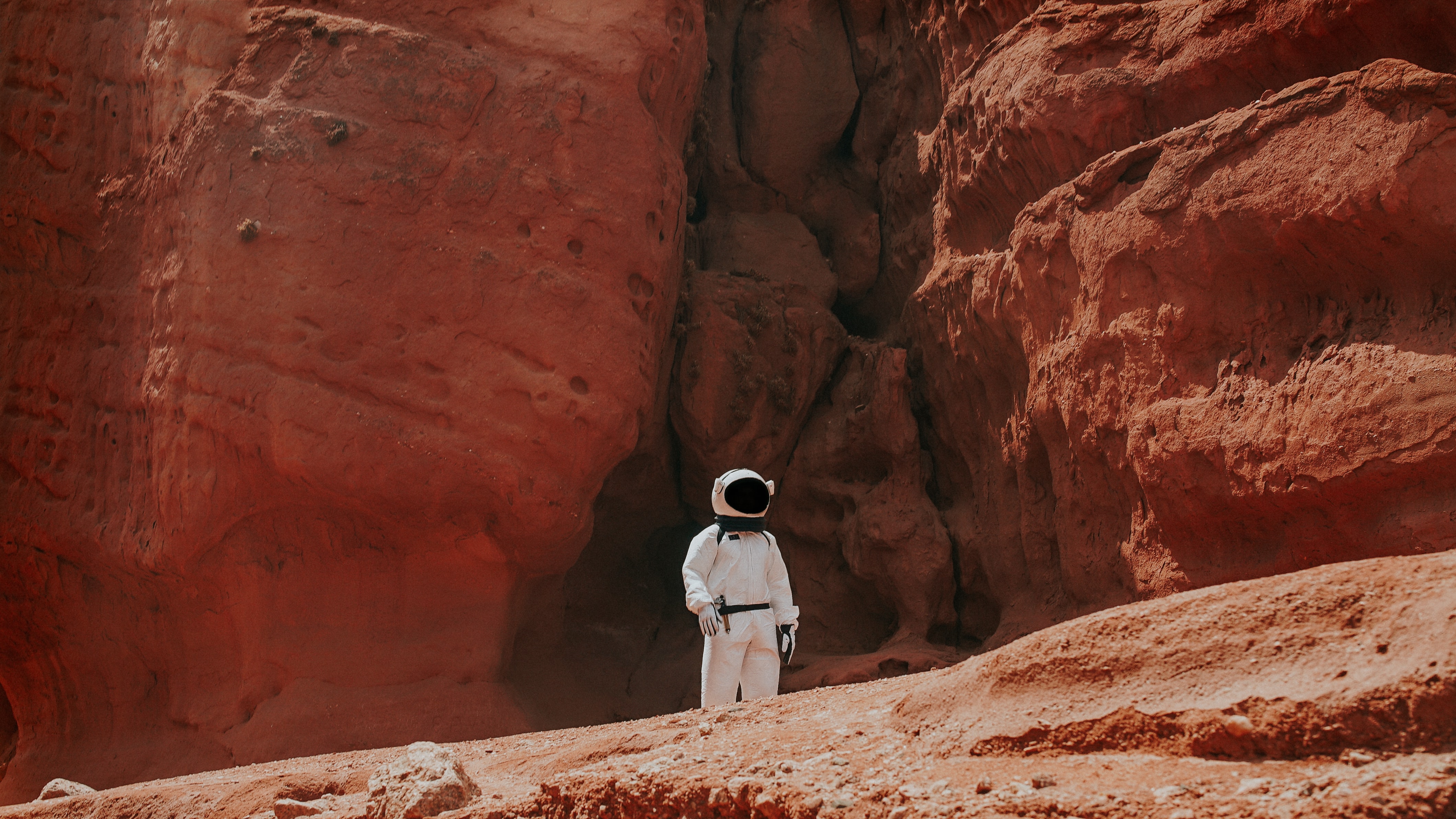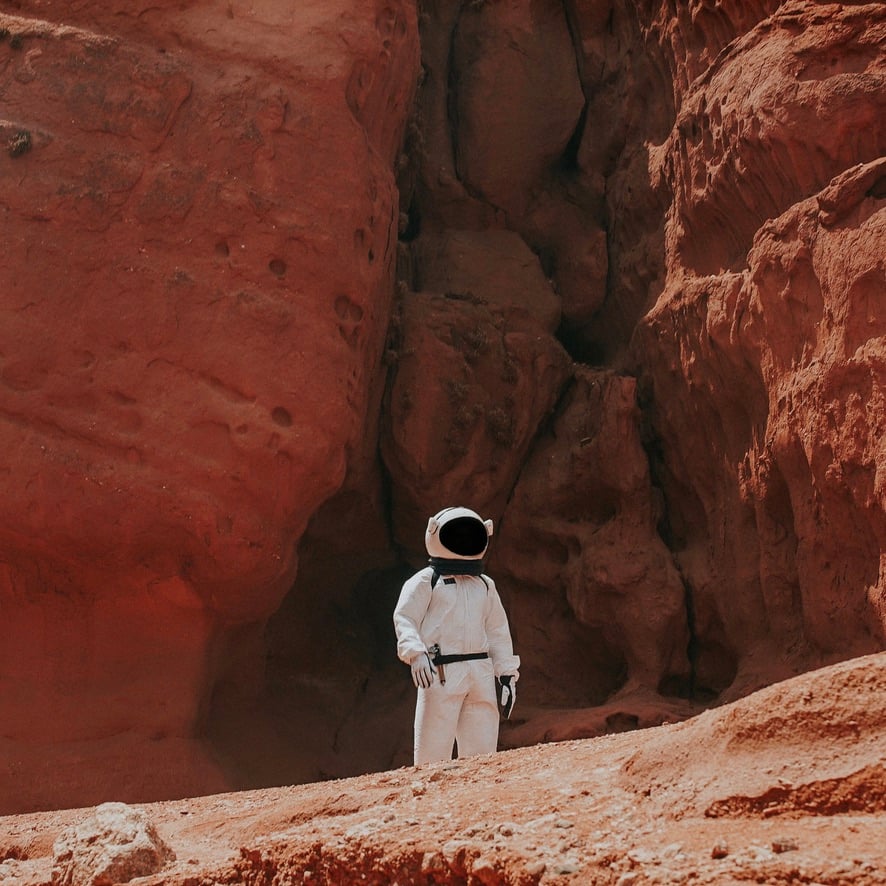
Elon Musk has been energetically pursuing his dream of establishing a human colony on Mars. Musk has said he wants to land a crewed flight on Mars by 2025 and to establish a colony there during his lifetime (he’s currently 49).
There is no shortage of people who are volunteering to go. MarsOne, a group also aiming to send people to the red planet, have had more than 200,000 volunteer.
It’s a three-year mission, minimum. For that period four people will be cooped up together in a space the size of a very modest two-bedroom apartment.
The time will pass slowly and be mostly boring (it’s only exciting if things go wrong). There will be constant machinery noise. Communication with Earth will have a lag of 45 minutes when they are close to Mars. Thunderbirds will not come to the rescue if things go pear shaped.
How will you select the crew members to make sure they get along and don't drive each other crazy?
“Are you prepared to die? If that's OK, then you're a candidate for going,” was Musk’s verdict.
But in the background, SpaceX and Nasa have been accumulating and developing technologies to make the trip possible. Along with bacteria-powered electricity generation and self-growing habitats they are developing algorithms to compose teams that will thrive in the conditions.
I spoke recently to my colleague Suzanne Bell, a De Paul University psychology professor currently contracted to Nasa to develop those algorithms.
“The idea of choosing people purely on their technical abilities just won’t work for missions like these. Choosing crew will rely on deep-level characteristics, like values and personality, just as much as medical, engineering and flight skills,” Bell told me.
And those characteristics aren’t going to be the old gung-ho, masculine overachiever types. That fits with what we know already about designing effective teams. Research from Earth-bound workplaces has shown that personality is one of the most powerful drivers of team effectiveness.
The reason personality matters is that people play two roles on a team. One relates to technical skill, whether you are an accountant, fitter, crane driver or policy adviser. The second is the psychological function you fill on the team.
All effective teams pay attention to the social relations of the group. Will someone push for results or make sure everyone on the team is OK? Is there someone who makes sure the team follows the right processes?
“In our work we’ve learned to have a deep appreciation for diversity on many levels. Not just surface-level attributes, like race or gender, but also expertise and cognitive diversity. And so you get a broader pool.”
Having a spread of personalities that complement each other is the best strategy to compose a team.
Too many similar personalities will exacerbate negative traits. For example, two people inclined to be sceptical can start a spiral where each looks for signals that the other is not to be trusted.
Bell did point out a personality characteristic you probably don’t want on the team – neuroticism (worrying, anxious, moody and tense). That fits with studies showing that moody and volatile people negatively affect the mood and dynamics of the whole team, depressing performance and leading to conflict. Being down the neurotic end of the spectrum myself, I asked Bell if I would ever make the crew.
“Sorry, Dave. Neuroticism in our data from people in isolated and confined environments is not particularly a great characteristic to have. Maybe wait for commercial flights?”
Luckily for me, though, it’s not all bad news. Our own work, and beautifully confirmed by the Nasa research Bell is conducting, shows that having a mix of personalities can balance out negative tendencies. In astronaut crews Bell has observed that people who are good at regulating their emotions can calm and soothe anxious crew by staying calm and reinterpreting scary events in a positive light.
Apart from having calm, emotionally resilient people, there are two other characteristics that have been shown to enhance teamwork in nearly every context.
The first is agreeableness – that is, people who are warm, who listen well, care about others and want to co-operate rather than compete. The second is conscientiousness – people who are precise, careful and good at following rules and procedures.
But at Nasa, Bell is going further than simply a score on a personality test. Her more recent research is trying to account for the fact that people vary their behaviour depending on the situation and who they are interacting with.
“What matters over time is that you can do that give-and-take, do that self-monitoring. So if the situation demands you be extroverted, that you can become extroverted and take charge. Or if the situation demands that you sit back, you can do that too.”
Of course, what really drives who should go is the nature of the mission. It’s a three-year trip in an aluminium can with no chance to have a night off. That means every crew member will be screened to ensure they have a preference for working with others, rather than autonomously.
The uber-rational Elon Musk gets it: “My biggest mistake is probably weighing too much on someone's talent and not someone's personality. I think it matters whether someone has a good heart.”
Photo credit: Nicolas Lobos, Unsplash.com
